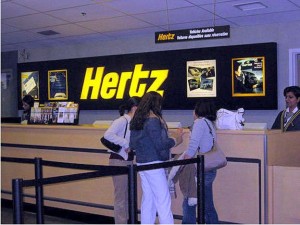
Hertz has agreed to support legislation that would require rental vehicles subject to a recall to be repaired before being returned to rent-a-car lots.
(This story has been updated to reflect the major rental companies’ support for a Senate bill that would require vehicles be pulled from their fleets and repaired after a recall.)
When Raechel and Jacqueline Houck’s car suddenly veered out of control, shot across the highway median and into an oncoming tractor trailer, killing the two women, the company that rented them their Chrysler PT Cruiser initially tried to claim the driver, 24-year-old Raechel, might have been either “suicidal or on drugs.”
In fact, the accident was ultimately ruled to have been caused by a known safety defect, the subject of a recall, that wasn’t repaired by Enterprise, one of the nation’s largest rental firms. It took the Houck family six years to win a $15 million verdict in 2010. But the problem has not gone away.
Despite a promise by Senator Barbara Boxer, a California Democrat, to enact legislation that would force rental companies to pull recalled vehicles from their fleets until they are repaired, a bill named for the two Houck sisters failed to pass in Congress. More recent efforts that would also cover used vehicles on dealer lots, haven’t gone anywhere – though California voters could have a say on such a proposal this year.
Considering the surge in safety-related recalls this year – more than 11 million and counting – and the flurry of headlines surrounding General Motors’ long delay in fixing 2.6 million vehicles fitted with defective ignition switches, it might come as a surprise to American motorists that rental car companies can keep faulty vehicles on the road. And dealers not only don’t have to make repairs, but also don’t even have to disclose that a used vehicle they’re selling is subject to recall.
“It should be a slam dunk,” David Friedman, acting administrator of the National Highway Traffic Safety Administration (NHTSA), recently told the New York Times. “To me it is hard to oppose ensuring that people who buy a car, whether it is new or used, or whether you are renting a vehicle, can have the confidence that it is safe.”
Pressure is mounting, at least from the consumer side, to take action. The U.S. Department of Transportation is laying out a plan to force repairs as part of its four-year budget proposal. Dubbed the “Grow America Act,” it would cover both car dealers as well as rental firms.
A separate measure facing the Senate, and named after the Houck sisters, would be limited to rental companies. The measure has been struggling to gain passage since 2012. But while rental firms initially raised concerns, they soon lent their support. A letter sent to Senate leaders in September 2012 by the four leading U.S. rental firms declared “We firmly believe that this consensus legislation accomplishes (the) objective” of keeping recalled vehicles out of rental fleets until they are repaired.
The four firms, Enterprise Holdings, U-Save Auto Rental of America, Dollar Thrifty Automotive Group, and Avis Budget Group, represent about 90% of the market, according to a spokesman for CA-D Sen Barbara Boxer, a lead sponsor of the bill. They have all agreed to voluntary follow the measure’s recommendations, even though it has been stalled on Capitol Hill for two years.
There are about 2 million rental vehicles in service at any given time, according to rent-a-car trade industry data. But that figure is dwarfed, in comparison, to the number of used vehicles that trade hands each year. According to CNW Marketing, that comes to somewhere near 50 million cars, trucks and crossovers, or roughly three times the annual market for new vehicles.
(Chrysler kicks off nine-speed production in Indiana. For more, Click Here.)
How many of those “previously owned” models have been subject to recalls, and how many have actually been repaired, are unknown numbers – in large part because used car dealers aren’t required to track that information, or to disclose it to buyers.
What is known is that, on average, only about 70% of the vehicles subject to a recall ever actually undergo repairs. The number can vary, usually depending upon such factors as the age of the vehicles subject to a recall, as well as the severity of the safety defect. Manufacturers also can influence the repair completion rate by more actively reaching out to owners.
(Click Here for details about the campaign to improve tire safety.)
But even then, experts suggest there are millions, and perhaps tens of millions of vehicles on the road that have not had safety-related repairs completed. In some cases, the problems can be quite severe. A recent lawsuit was filed against GM by a woman who purchased a used sedan with a defective ignition switch that shut off unexpectedly, causing a crash. She had unwittingly purchased the vehicle from a dealer who did not disclose the used car was subject to the recall.
The National Automobile Dealers Association has both expressed support for efforts to get used cars repaired while also lobbying to block legislation. The powerful trade group complains that it would be unfair to target dealers who handle only a portion of the used vehicles sold each year. A major share of the business is handled on the personal level – whether through classified ads or when cars are sold between family, friends and co-workers.
(To see more about VW delaying its lofty U.S. sales target, Click Here.)
A challenge will be to find ways to make sure that all used cars, when sold, are checked against the national recall database and, if necessary, repaired.
The good news is that the National Highway Traffic Safety Administration recently launched a new online database that motorists can check to see if their vehicle is subject to a recall. You can find it by Clicking Here, or by going to NHTSA’s consumer site, www.SaferCar.gov.
